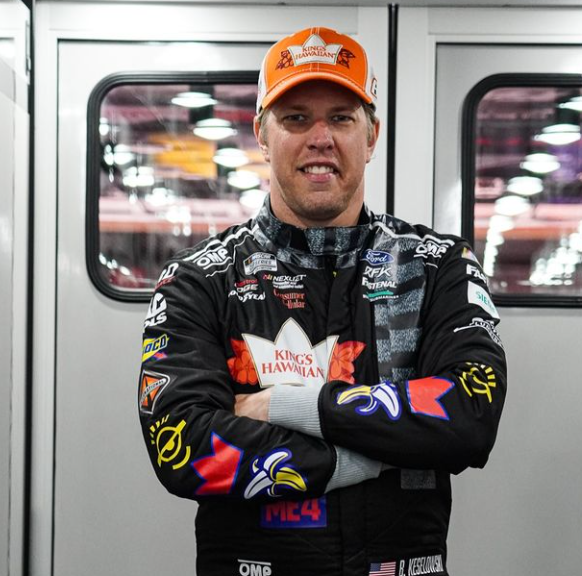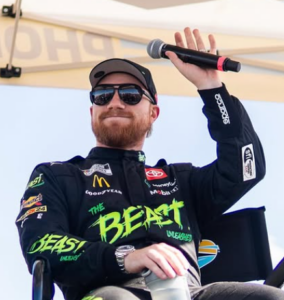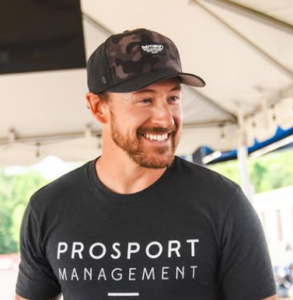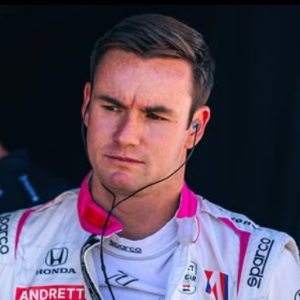RFK Racing’s Charter Negotiations and Potential Third Team
Rumors have been circulating that RFK Racing, co-owned by Brad Keselowski, may be reconsidering plans for a third full-time team amid ongoing charter negotiations. According to a recent report by The Athletic, the team is actively seeking to secure a charter for this potential third car to avoid the financial strain associated with running an open car.1
Table of Contents
The Financial Implications of Running an Open Car
Operating an open car, which refers to a vehicle that does not have a charter guaranteeing a spot in every race, can be a costly endeavor. Without a charter, a team must secure a place in each race through performance or qualifying, which adds significant financial risk.
The costs associated with running an open car include the potential for additional expenses related to travel, equipment, and the overall uncertainty of making every race. According to reports, these costs can amount to “extra millions of dollars,” which can place a substantial financial burden on a team.
RFK Racing’s Strategic Approach
- RFK Racing’s strategic approach is focused on minimizing these financial risks by securing a charter. A charter provides a guaranteed spot in every race, which offers financial stability and helps avoid the unpredictability of open car status.
- By securing a charter, RFK Racing aims to ensure that their third team can operate more economically and efficiently, ultimately saving the team significant amounts of money.
- Brad Keselowski and the RFK Racing team are reportedly making concerted efforts to secure this charter to support their expansion plans.
- The move underscores the importance of financial stability in the competitive world of NASCAR, where managing costs and ensuring consistent participation in races are crucial for long-term success.
Current Status of Charter Negotiations
As of now, RFK Racing’s charter negotiations are ongoing, and the outcome will likely impact the team’s ability to field a third full-time car. The team’s decision to pursue a charter reflects a broader trend among NASCAR teams to seek financial stability and competitive advantage through guaranteed race entries.
The outcome of these negotiations will be closely watched by fans and industry observers, as it will determine whether RFK Racing can expand its operations as planned or if adjustments will be necessary.
Also Read: Brad Keselowski Discusses Impact of Gene Haas Keeping SHR Charter on Tony Stewart
RFK Racing President Discusses Challenges of Expanding to a Third Team
RFK Racing, a prominent name in NASCAR, has been making headlines recently with its ambitions to expand its driver lineup. Steve Newmark, the President of RFK Racing, has opened up about the various challenges and considerations involved in adding a third team to their roster.2
View this post on Instagram
This move comes after previous attempts to expand that did not come to fruition. In a candid discussion, Newmark highlighted both the strategic and operational hurdles that come with such an expansion.
Strategic Considerations in Expanding the Driver Lineup
- Expanding a racing team’s driver lineup is not a decision taken lightly, and RFK Racing’s attempt to add a third team has been met with a variety of strategic challenges. One of the primary considerations is aligning the new team with the existing structure and goals of the organization.3
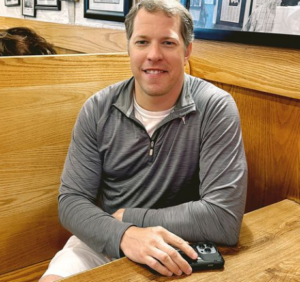
- Newmark emphasized that expanding the lineup involves more than just adding another car to the roster. It requires a thorough evaluation of the team’s overall strategy, including how the new driver fits into the long-term vision of the organization.
- This involves assessing the potential impact on team dynamics, sponsorship deals, and the allocation of resources.
- The strategic planning for such an expansion also includes determining the appropriate level of investment required.
- Newmark pointed out that adding a third team means increased costs related to equipment, personnel, and operational expenses. Ensuring that the team is financially prepared for these additional expenditures is crucial for a successful expansion.
Operational Challenges and Team Dynamics
The operational aspects of expanding to a third team present their own set of challenges. Managing an expanded driver lineup requires a careful balance of resources and coordination. According to Newmark, one of the significant challenges is ensuring that each team receives adequate support and attention.
Previous Attempts and Lessons Learned
RFK Racing’s previous attempts to expand their driver lineup provide valuable insights into the challenges they face. Although the team had plans to add a third team in the past, these efforts did not come to fruition.
Newmark reflected on these previous experiences, noting that they offered important lessons in both strategic planning and operational execution.
The Life and Career of Brad Keselowski: From Rochester Hills to NASCAR Stardom
Brad Keselowski, born on February 12, 1984, in Rochester Hills, Michigan, is a notable figure in the world of NASCAR. At 39 years old, Keselowski has carved out a distinguished career in motorsports, driven by his early exposure to racing through his family’s automotive background.
His journey from a young racing enthusiast to a celebrated NASCAR driver is a testament to his dedication and talent in the sport.
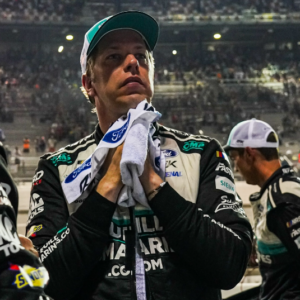
Early Life and Automotive Family Background
Brad Keselowski was born into a family deeply entrenched in the automotive world. His father, Bob Keselowski, was a well-respected short-track racer who competed in various series, including the ARCA Menards Series and the NASCAR Truck Series.
This early exposure to racing played a crucial role in shaping Brad’s future career. Growing up in Rochester Hills, a suburb of Detroit known for its automotive heritage, Brad was immersed in a culture that revered car racing and mechanical engineering.
I will say we gave it everything we had. So close to realizing another opportunity at the Championship. Still incredibly proud of this team. pic.twitter.com/6aN5w4lOOu
— Brad Keselowski (@keselowski) October 31, 2021
The Start of a Racing Career
Brad Keselowski’s racing career began at an early age, reflecting his family’s influence and support. His initial foray into the sport was through go-kart racing, where he quickly demonstrated his natural talent and competitive spirit. This early success in go-karting paved the way for his entry into more structured forms of racing.
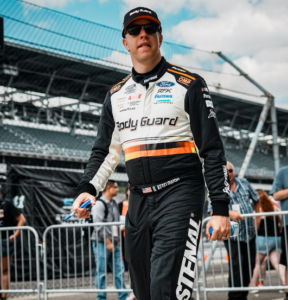
In 2004, Keselowski made his debut in the ARCA Menards Series, a key step in his progression through the ranks of stock car racing. His performances in the ARCA Series garnered attention and showcased his potential as a driver. Keselowski’s determination and skill on the track did not go unnoticed, and he continued to advance his career by participating in various racing series.
Breakthrough in NASCAR
Keselowski’s big break came when he joined the NASCAR Camping World Truck Series in 2008. His debut season was marked by impressive performances, including his first win at the 2008 NASCAR Camping World Truck Series race at Bristol Motor Speedway.
This victory was a significant milestone in his career and established him as a rising star in NASCAR.
Also Read: Brad Keselowski Bio, Age, Career, Parents, Net Worth And More
Brad Keselowski’s Early NASCAR Career
In 2004, at the young age of 20, Brad Keselowski embarked on his NASCAR career, marking the beginning of a journey that would lead him to become one of the most accomplished drivers in the sport. His first experience came in the Craftsman Truck Series, where he drove the No. 29 Ford F-150 for the family-owned Keselowski Motorsports team.
This initial step into professional stock car racing laid the groundwork for his future successes, while also offering a glimpse into the challenges and learning experiences that come with starting a career in NASCAR.
Debut in the Craftsman Truck Series
Keselowski made his NASCAR debut in the 2004 Kroger 250 at Martinsville Speedway, one of the most challenging short tracks in the sport. Starting from the 26th position, Keselowski faced the typical difficulties that a rookie driver might encounter at such a notoriously tricky track.
Despite these challenges, his debut represented an important milestone in his budding racing career. He finished the race in 33rd place, not a remarkable result by any means, but a valuable learning experience that would fuel his determination to improve.
Progress in the 2004 Season
Throughout the remainder of the 2004 Craftsman Truck Series season, Keselowski showed flashes of his potential, even as he faced the typical learning curve associated with racing at such a high level. His best finish of the season came in the UAW/GM Ohio 250 at Mansfield Motorsports Park, where he managed to finish 16th.
While this may not seem like a groundbreaking result, it was a significant improvement from his early performances and demonstrated his growing comfort behind the wheel of the No. 29 Ford F-150.
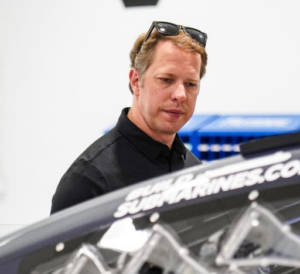
Challenges of Running a Family-Owned Team
Driving for a family-owned team presented its own set of challenges. Keselowski’s father, Bob Keselowski, had a long history in racing, and the family had established themselves as a respected presence in the motorsports world.
Brad Keselowski’s Net Worth in 2024
Brad Keselowski, one of NASCAR’s most recognized and successful drivers, has built a significant fortune over the course of his career. According to Celebrity Net Worth, as of 2024, Keselowski’s net worth is estimated at an impressive $45 million.
This wealth reflects not only his success as a driver but also his role as a team owner and his numerous business ventures within the motorsports industry.
Keselowski’s Annual Earnings
Keselowski’s current contract with RFK Racing (Roush Fenway Keselowski Racing) reportedly brings in around $9.4 million annually. This figure includes his salary as a driver, his earnings from race winnings, and his share of the profits from the team.
As a co-owner of RFK Racing, Keselowski is not just a driver for the team but also plays a significant role in its operations and financial success. His leadership has helped elevate RFK Racing’s status in NASCAR, and this dual role as both a driver and an owner has substantially increased his overall earnings potential.
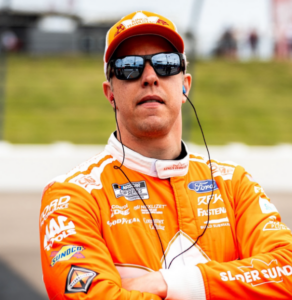
Salary Breakdown: Driving and Ownership
Keselowski’s position within RFK Racing provides him with two streams of income: his salary as a driver and his earnings as a co-owner. His base salary from driving is likely to be around $8-9 million per year, while his ownership stake in RFK Racing provides him with additional profits from the team’s performance, sponsorships, and merchandise sales.
Endorsements and Sponsorships
Another major contributor to Brad Keselowski’s net worth is his endorsement deals and sponsorships. NASCAR drivers, especially those as successful as Keselowski, often have lucrative partnerships with major brands in the automotive, energy, and consumer goods industries.
Throughout his career, Keselowski has been sponsored by several prominent companies, including Miller Lite, Ford, Discount Tire, and Autotrader, among others.
FAQ’S
1. What is RFK Racing’s decision regarding the third ‘open’ car?
Ans: RFK Racing has decided not to field a third ‘open’ car for the upcoming NASCAR season. The team is focusing its efforts on securing a charter for their racing operations instead.
2. Why is RFK Racing focusing on securing a charter?
Ans: Securing a charter is crucial for RFK Racing as it ensures a guaranteed spot in each race of the NASCAR Cup Series. Charters provide financial stability and are essential for long-term planning and competitiveness in the series.
3. What are the benefits of having a charter in NASCAR?
Ans: A charter guarantees a team’s entry into each race, provides a share of the purse and revenue, and ensures greater financial security. Teams with charters avoid the uncertainty of qualifying for races, which can be a significant advantage in terms of consistency and planning.
4. How does this decision impact RFK Racing’s operations and strategy?
Ans: By declining the third ‘open’ car, RFK Racing is consolidating its resources and focus on acquiring a charter. This strategic decision may help the team enhance its competitive edge, stabilize its financial situation, and plan for future growth.
5. What are the potential implications for the drivers and staff of the ‘open’ car?
Ans: The decision to forgo the third ‘open’ car may affect drivers and staff who were associated with that entry. They might need to seek opportunities with other teams or in different racing series. The team will need to adjust its staffing and driver lineup accordingly.
Read More: Brad Keselowski NASCAR Victory: A Long-Awaited Breakthrough, Bio/Wiki, Net Worth 2024
